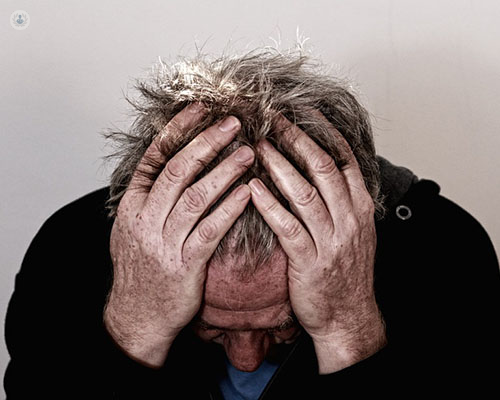Everything you need to know about OCD (obsessive compulsive disorder)
Written in association with:Dr Victor Thompson is a leading London-based psychologist. In his latest article, Dr Thompson explains obsessive compulsive disorder (OCD) in detail, including factors that can lead to the development of the disorder and how it’s treated.

What factors can predispose to the development of OCD?
Several factors can contribute to the likelihood of OCD developing:
- Feeling anxious, stressed, or uneasy.
- Growing up in a chaotic, stressful or unorganised environment
- Growing up in a strictly ordered, organised environment
- Experiencing a bad event where you think you should have been more careful or that you feel responsible for
- If you take comfort in rituals, or if they lessen your anxiety
What is the difference between obsessions and compulsions?
Obsessions are the thoughts that we have with OCD, that are often intrusive. They get in the way of our day and are very disturbing in nature. They are often associated with making us feel like we are a bad person. They can also sometimes be sexual in nature, or about an accident, illness or violence.
Understandably, we want to get rid of these unpleasant thoughts, and the associated feelings of fear, guilt and disgust.
Compulsions are the behaviours or mental habits that we perform to bring us relief and reassurance from these negative feelings mentioned above. They make us feel better, and let us believe we have done something to prevent bad things from happening.

What other mental health disorders can co-exist with OCD?
A number of different mental health disorders can co-exist with OCD. Primarily it is associated with anxiety disorders, such as social anxiety or generalised anxiety disorder. There are common elements to anxiety disorders, so if you have one, there’s quite a high chance you will have another.
People with OCD, especially those who have suffered from OCD for a long time, often develop depression. People with OCD often see their lives become more limited, or smaller. This causes a lower mood, as they have fewer interesting things to do, and see fewer people. This is in addition to many negative thoughts and beliefs that come with OCD, which can take a heavy toll on a patient’s mental health.
How is OCD diagnosed?
OCD can be diagnosed by your GP, psychologist or psychiatrist. People can have OCD for a long time before it is diagnosed and they seek treatment. People live with OCD on average 14 years before they seek treatment, and some people never seek treatment.

What treatment options are available for OCD? When is brain stimulation considered?
The number one treatment is psychological therapy, such as cognitive behavioural therapy (CBT). The therapist will provide information about OCD and will look at the excessive feeling of responsibility the patient has in preventing bad things from happening, and the exaggerated probability of bad things happening that they believe in.
The next step is Exposure and Response Prevention, or ERP. The patient is helped to face these intrusive thoughts, and to delay or not engage in the rituals and compulsions that help them feel better.
Over the course of treatment, these thoughts and emotional states will become less intense, and the patient will develop a sense of control and learn that they can manage and reduce the OCD symptoms and disruption the disorder causes.
Deep brain stimulation is another OCD treatment getting a lot of attention these days. It might seem like an easy option, but it is not readily available for most people. It is only available to people if psychological therapy has already proved unhelpful in the treatment of their OCD symptoms.
Dr Victor Thompson is a leading London-based psychologist with more than 20 years of experience. If you are concerned about OCD or any other mental health condition, you can book a consultation with Dr Thompson today via his Top Doctors profile.


